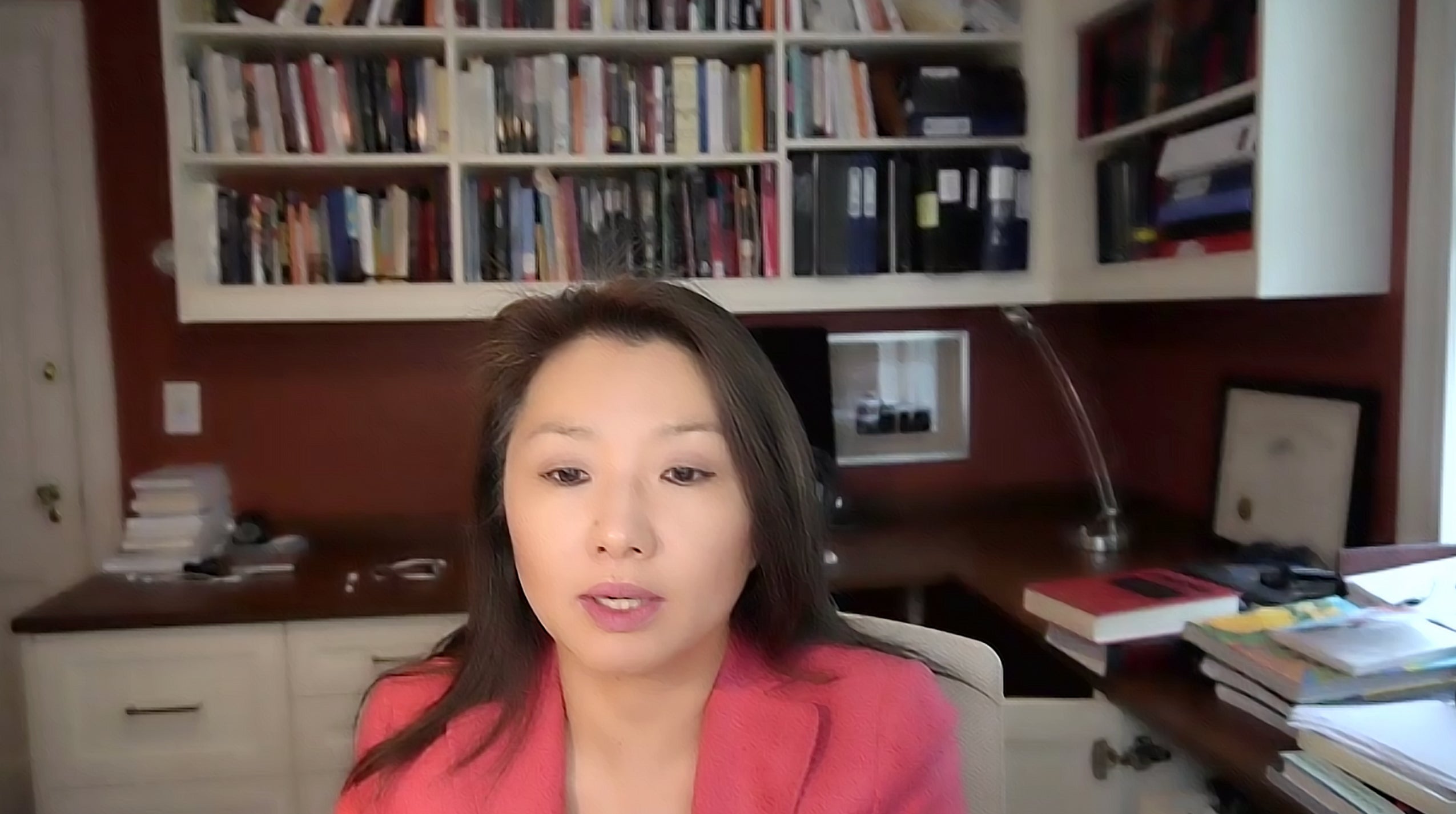Professor Jeannie Suk Gersen ’02 introduced this year’s inaugural Last Lecture by reminding the graduating class of its special place in history. “You will be forever the class that persevered through the extraordinarily taxing period in American history, and graduated from the law school into what we hope will be the waning of the global pandemic and the eventual return to normal life.”
She began the wide-ranging talk on an emotional note, sharing the impact that the pandemic has had on her both personally and professionally. She recalled, for instance, conducting her first Zoom class on constitutional law the day after she’d learned of a friend’s death. “I looked at my 115 students’ faces, in boxes onscreen. Then I looked at my own face and I heard my own voice, and I realized that I was crying — like, ugly crying.” She took a short break and returned to find the chat filled with supportive messages. “In that moment, loss and sadness were undeniable — not completely exiled from the classroom as would be our normal habit.”
Many other teachers found themselves sharing such vulnerable moments over the past year, she said — and the teaching process has been transformed as a result. “If I’d been teaching at a podium in Landgell or Austin or WCC, I would probably not have acknowledged what was happening with me. But sitting at home with the students, that wasn’t really plausible … I have openly acknowledged feelings of fear and distress, and recognized students’ feelings of fear and distress.” This, she said, was new territory in the traditionally impersonal study of law. “I think we’ve become more accepting of the acknowledgment of humanity, of vulnerability, of ourselves’ and other peoples’ feelings.”
In some ways, lawyers are most uniquely equipped to help our country and the world right now come away from this intense polarization we are experiencing, where people live in very different realities and facts. I actually think lawyers are a great hope
Much of Gersen’s talk focused on the issue of academic freedom, which she said she supports, and how it is subject to the demands of objective and historical truth. In her view, this question became especially relevant in light of the recent controversy over an article, titled “Contracting for Sex in the Pacific War,” that was published in December by HLS Professor J. Mark Ramseyer ’82. The article claimed that the World War II “comfort women” — an estimated 200,000 women, largely Korean, who are understood by most historians to have been forced to serve in Japanese military brothels — had done so voluntarily, an assertion contradicted by previous scholarship and many historians at Harvard, in the U.S., and abroad.
As the first Asian-American woman and first ethnic Korean to be tenured at HLS, Gersen was immediately contacted for an opinion by numerous students and alumni when the article appeared. As she worked to debunk the paper’s claims, the issue highlighted for her a central tension facing the world today. It also, she believed, held a larger and timely lesson for her students. “The commitment to truth in today’s day and age can be really fraught. We have just been through several years where there has been an enormous assault on truth, and where people have presented all kinds of claims as if they were the truth without any grounding in evidence. And this is where what we do here, as academics and students and teachers, becomes really key. Because how do we do that? We do it by upholding professional standards and procedures.” Thus, she said, academic freedom comes with responsibility.
Responding to an audience question, Gersen addressed the dual nature of the lawyer’s mindset — to advocate one side of an argument while engaging with the other. “Both things are true: Lawyers tend to be very one-sided because of the idea of zealously representing a client, but their training also allows them to learn that there is another side, there may be multiple sides, and that you have to encounter, confront, and address others’ arguments. The contours of the argument are best known in some respects by mastering the other side’s argument and understand exactly what’s going on — all the pieces, all the intricate ways in which the parts of the argument connect to each other, and all the work that it takes to get at the truth through the different kinds of conflicting arguments. I find this paradoxical, that lawyers have both of those tendencies.”
The fact that truth is complicated is something lawyers can teach the world, she said. “In some ways, lawyers are most uniquely equipped to help our country and the world right now come away from this intense polarization we are experiencing, where people live in very different realities and facts. I actually think lawyers are a great hope.”
Asked about her own final days as an HLS student, she offered graduates another piece of advice: Get outside and take a walk. She said the days after last classes are her own favorite time of year, and recommended that even students who can’t be in Cambridge find somewhere to explore. “I would spend some time during the last days of law school with people you love, doing something non-verbal. Including just exploring the places around you that you can look at with new eyes, because of all you’ve accomplished.”
